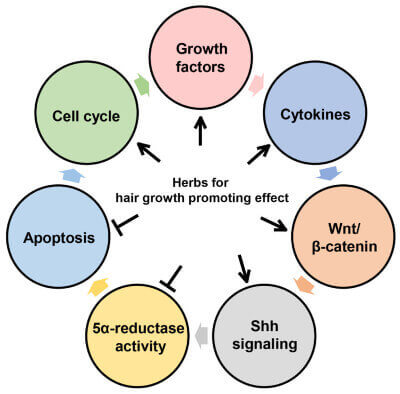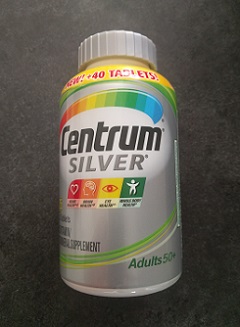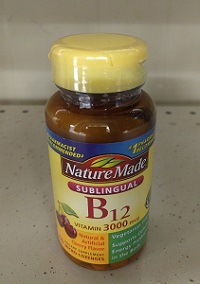
The hair loss industry is rife with countless stories and testimonials on home remedies and natural cures for hair loss. People prefer to try natural treatments to treat their thinning hair before considering alternatives. They are often misled into believing that such treatments will lead to complete hair regrowth (or reversal of grey hair).
For the most part, such testimonials are bogus scams to promote various natural hair loss products. I have been following the hair loss world fairly regularly for over 15 years. During that time, I have reached the conclusion that natural hair loss treatments virtually never regrow hair that has been lost for a long time. In the best case scenario, you might grow some peach fuzz in totally bald areas of the scalp.
However, natural remedies can definitely reduce the rate of hair fall and made existing thinning hair become thicker and stronger. There are hundreds of studies proving as such, some of which I discuss in this post. Moreover, if you have a severe vitamin or mineral nutritional deficiency, supplementation can sometimes work miracles and stop your hair loss in its tracks. However, these latter situations are extremely rare.
Update: May 2023 — According to a new literature review, herbal extracts and formulations derived from plants may be effective at reducing hair loss. These include Urtica dioica, Humulus lupulus, Serenoa repens, Vitis vinifera, Pygeum africanum, Cucurbita pepo and more. Also beneficial to hear health include certain individual herbal compounds, micronutrients, bee products and keratin. Also see my posts on CBD oil and hair growth.
Update: November 2022 — A new systemic review in JAMA concluded that natural products and supplements can be effective against treating hair loss. None of these are likely to regrow hair in totally bald areas of the scalp. but they can make existing hair thicker per the research. Among the supplements praised in these findings include Nutrafol and Viviscal. Also recommended are zinc, apple nutraceuticals, capsaicin, isoflavones, pumpkin seed oil, tocotrienols, and omega 3 and 6 with antioxidants. Another November 2022 study analyzes the molecular mechanism of natural products that activate the Wnt/β-Catenin signaling pathway for reducing hair loss.
Update: April 2022 — According to a literature review, natural products to consider for treating androgenetic alopecia include: saw palmetto, caffeine, melatonin, marine extracts, rosemary oil, procyanidin, pumpkin seed oil, and cannabidiol oil.
Update: December 2021 — Modulation of hair growth promoting effect via natural products. A really through article analyzing numerous herbal products and phytochemicals that benefit hair.
Home Remedies for Hair Loss
There is solid evidence that certain natural products can improve the quality of existing hair. Besides increasing hair thickness, some natural treatments can significantly reduce shedding and the rate of hair fall. On a related note, make sure to read my post on amino acids for hair growth.
Some natural home remedies keep hair in anagen (growth) phase longer, others directly impact growth factors and signaling pathways. In 2019, UC Irvine scientists published a good overview on botanical, herbal and other alternative treatments for hair thinning.
Vitamin and Mineral Supplements for Stronger Hair

A large number of natural products for faster hair growth entail vitamin and minerals supplements. Among the most important include vitamin B12 and vitamin B7. If you have a severe deficiency in these vitamins, it could cause hair loss.
A 2018 study concluded that micronutrients such as vitamins and minerals play an important (but not entirely clear) role in normal hair follicle development and immune cell function. This includes vitamin A, vitamin B, vitamin C, vitamin D, vitamin E, iron, selenium, and zinc.
Having said all of the above, note that most Americans are not severely deficient in vitamins and minerals. In many cases, excessive foot and drink intake is leading to overnutrition. Moreover, a 2022 Council for Responsible Nutrition (CRN) survey found that 75 percent of US adults taking some type of nutritional supplement. The vast majority of supplement users tend to be regular users.
Vitamin B12 and Hair Loss

There are a number of studies that have found vitamin B12 deficiency to lead to hair loss. The good news is that supplementation with this important vitamin can lead to a reversal in hair loss.
According to a report from Harvard Health, serious deficiency in vitamin B12 can be corrected via either: weekly shots of vitamin B12; or daily high-dose B12 pills.
Natural Treatments for Hair Growth
In this post, I will discuss natural hair loss treatment products that have some solid scientific backing. You should assume that none of these natural products will bring back hair in totally bald areas.
Surprisingly, most of the below mentioned studies have come out in 2014 through 2019. Some people try to combine many of the natural ingredients mentioned below into homemade shampoos.
Propolis
Bee propolis was big news last year due to new research findings. Propolis is a product made by bees, and it has anti-inflammatory properties that result in healthier hair in mice. For more, see the published study from Japan on propolis and hair growth in mice. Several hair products with bee propolis in them have good reviews on Amazon, including Iden Bee Propolis Treatment and Iden Bee Nourished shampoo & conditioner duo pack.
Saw Palmetto
Saw Palmetto berry extract comes from a plant native to the United States. For years it has been claimed that Saw Palmetto reduces DHT levels resulting in less enlarged prostates and more scalp hair (just like the drug Finasteride, but a lot weaker). Although the proof of effectiveness on hair growth is far from certain, there is enough anecdotal evidence and research work to warrant including this plant in this post about natural cures. Some of the best dermatologist recommended hair loss shampoos include Saw Palmetto as a key ingredient.
Oleuropein (Olive Drupe)
We keep reading about the miracle of olive oil and a Greek/ Mediterranean diet’s positive impact on human lifespan. Now there is yet one more reason to buy olives: a study from earlier this year from South Korea found that topical application of oleuropein induces anagen hair growth in mice. The study is quite technical and it seems like oleuropein stimulates the critical Wnt10b/β-catenin signaling pathway (which is also crucial when it comes to human hair). Oleuropein also upregulates IGF-1, KGF, HGF, and VEGF gene expression in mice. Amazon has a highly rated oleuropein supplement for sale.
Procyanidin B-2 (Extracted from Apples)
There are a number of studies that tout the benefits of Procyanidin B-2 (derived from Apples) for hair growth. DS Labs Revita Hair Growth Shampoo is probably the most famous product that contains Procyanidin B-2.
Sandalwood (Sandalore)
In 2018, sandalwood (via the synthetic sandalore) was a bid deal in the hair loss world. Scientists found that just a whiff of sandalwood scent used in perfumes can lead to increased hair growth. Apparently, the olfactory receptor OR2AT4 regulates human hair growth. Dr. Ralf Paus (UK) and Giuliana Pharma (Italy) led the above research. Sandalore and related odorants have been shows to even benefit wound healing. Aromotherapy and scalp massage using rosemary and sandalwood oil is also considered beneficial.
Caffeine
Many hair loss shampoos include caffeine as a key ingredient. See my detailed post on how caffeine can lead to hair growth stimulation. One study from 2014 suggests that caffeine really does have a beneficial effect on human scalp hair. And this 2017 study from India also comes to a similar conclusion.
Peppermint Oil
Yet again in mice. Apparently peppermint oil 3% results in better hair growth than Minoxidil 3% according to a 2014 study. According to Dr. Jennifer Ashton, peppermint oil vasolidates. However, it needs to be diluted with another oil before it can be applied and massaged into the scalp.
Pumpkin Seed Oil
A rare human study from 2014 finds that pumpkin seed oil is beneficial to hair growth on men with androgenic alopecia. Many natural DHT blockers contain pumpkin seed oils and extracts as a key ingredient.
Rosemary Oil
An increasing numbeer of dermatologists are recommending rosemary oil for the scalp to improve hair health. One study found that rosemary oil was as effective as Minoxidili 2% in growing hair in people with androgenetic alopecia.
Argan Oil
A lot of people use argan oil for its hair benefits. According to this guide, Argan oil is used as a moisturiser, conditioner and softener for skin and hair. Originally from Morocco, argan oil contains large amounts of Vitamin E and other beneficial fatty acids.
Epigallocatechin-3-gallate (EGCG) from Green Tea
EGCG (usually derived from the dried leaves of green tea) has attained a stellar reputation worldwide for its purported health benefits and weight reduction properties. There is not enough proof of many of these benefits, but green tea in general has become synonymous with good health. So it is no surprise that there are several studies that have concluded EGCG to have a favorable impact on mouse hair as well as on human hair. Note that black tea also has hair benefits due to the presence of theaflavin antioxidant polyphenols.
Epilobium
There are some reports that epilobium inhibits DHT just like Saw Palmetto, but I am not entirely convinced by the evidence. Nevertheless, numerous people on hair loss forums have tried this natural product so I am including it here.
Turmeric (Curcumin)
In recent years, turmeric has garnered significant interest as a miracle cure for all kinds of ailments ranging from cancer to Alzheimer’s disease. While curcumin clearly has anti-inflammatory properties, proof regarding major health benefits is still limited. However, the following article and anecdotal reports made me want to include turmeric in this post for now.
Seaweed
A number of studies from Asia suggest seaweed extracts are beneficial to hair. One detailed study from South Korea touts the benefits of Grateloupia elliptica (a seaweed native to Jeju Island) on scalp hair growth. This same strain of seaweed as well as several others seem to also reduce inflammation in mice.
Mangrove Tree Extract
In 2021, scientists from Thailand found that an extract from mangrove trees stopped hair loss and even promoted hair growth. The extract (Avicennia Marin) contains the key chemical Avicequinon-C. This chemical inhibits the enzyme that produces hair loss hormones (i.e., dihydrotstosterone).
Methyl Vanillate
Topical methyl vanillate (a plant derived natural ingredient) increases hair count and hair mass index by inducing Wnt10b mRNA expression in the scalp. According to the study, methyl vanillate has recently been shown to activate the Wnt/β-catenin signaling pathway, which has become a key target in the treatment of androgenic alopecia by numerous researchers in recent years.
Other less known natural and herbal remedies for hair loss include:
- Laminaria Japonica and Cistanche Tubulosa. This study from 2015 portends favorable to the above combination treatment.
- Baicalin, a flavonoid isolated from Scutellaria baicalensis. Also see my post on Redensyl. Capixyl. Procapil and Baicapil.
Cuscuta Reflexa (Dodder Plant)
A few studies have shown that Cuscuta Reflexa inhibits 5 alpha-reductase activity and hence benefits hair growth. e.g., see here and here.
